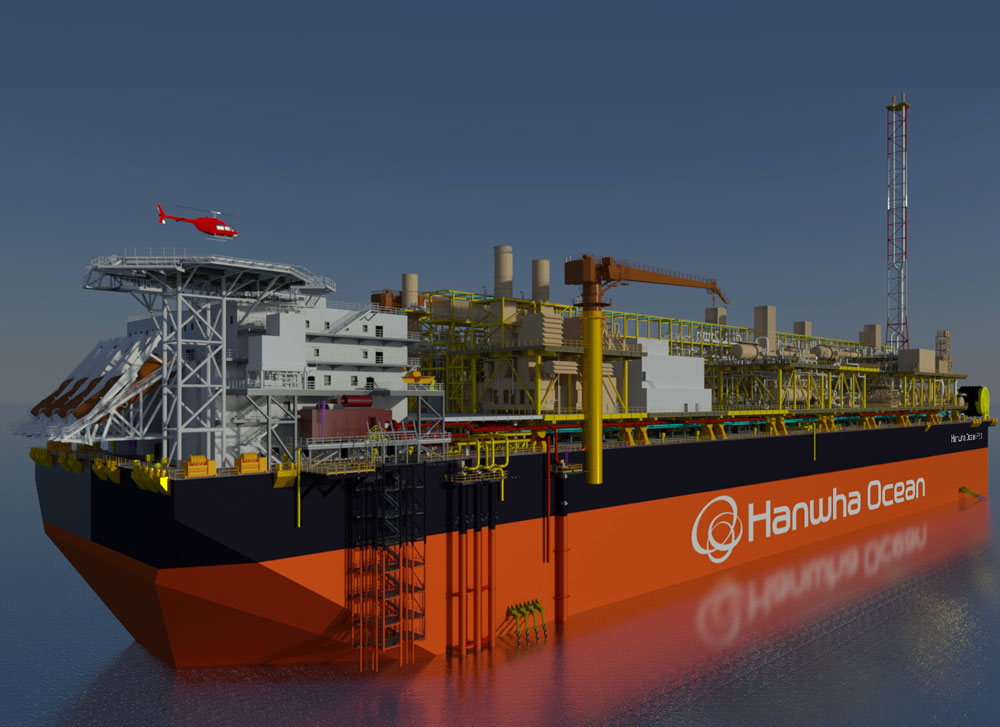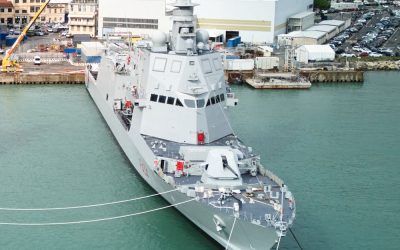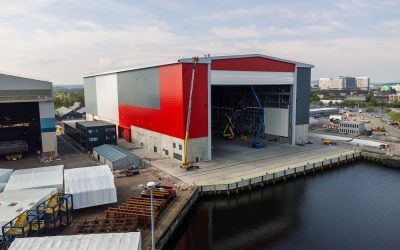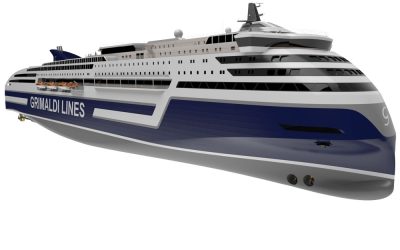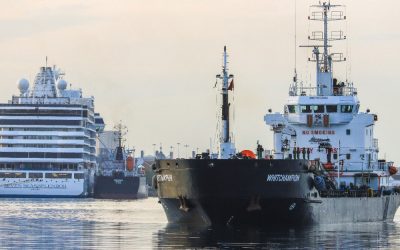South Korean shipbuilder Hanwha Ocean confirms that it has received Approval in Principle (AiP) from class societies ABS and Bureau Veritas for its Pre-FEED standard floating production, storage and offloading (FPSO) concept.
Reportedly optimised for deployment off West Africa, and with a hull designed for 20 years of uninterrupted operations between drydockings, the 340m x 62m Pre-FEED standard FPSO has the capacity for approximately 2.38 million barrels of crude oil, and, once functional, will produce 190,000 barrels of crude oil daily. The unit has been designed to accommodate topsides spanning up to 17,600m2 and weighing up to 55,000tonnes.
ABS adds: “To address the recent tightening of environmental regulations, the FPSO is set to incorporate technologies such as zero-flaring, greenhouse gas [GHG] monitoring and an energy management system. All equipment has been electrified to reduce operational costs throughout the unit’s lifecycle.” The FPSO will also benefit from predictive maintenance, cybersecurity and digital twin packages. Hanwha Ocean hints that the concept could be used to complement “continued growth” in demand for offshore plants, “particularly in West Africa and South America”.
